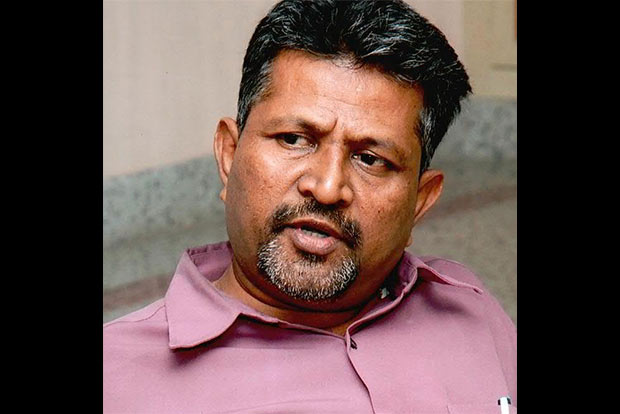Do people have a say in who their MLAs should side with?
The present political impasse has created a situation wherein the people are not in contact with their elected representatives particularly their Assembly MLAs’. There are attempts by people in the constituencies to contact their MLA and speak to him/her about their opinion on the political crisis.;
By : migrator
Update:2017-02-14 10:41 IST

Chennai
The social media is playing a major role in this new form of communication with their elected representatives. In a democracy, it is the people who elect their representatives, be it to the Parliament or to the State Legislature. It is a direct election and various political parties in a multi-cornered contest place before them their election promises in the form of party manifesto.
The MP and MLA represent them in the Parliament and in the State Legislature. In the case of Tamil Nadu, the present political party elected to power, namely the AIADMK is split and the MLA’s are also divided.
Whose decision it is to join a group or to stay back in the party? It is people who elect them to the legislature from a particular constituency, which means do people have a say in this? In an ideal scenario, the MLAs should go back to their constituency and consult their people who elected them for an opinion and choice.
It may not be possible to get the opinion of all, like in the general election but the interest groups such as youth, women, workers, panchayat leaders and many other groups and individuals. This will help an MLA to understand the general pulse of the constituency. To conduct an opinion poll in the constituency to find out the mind-set of the people is possible with the advent of the advance technology and through the social media.
In a democracy, the MLA takes a decision to be in group or not and that too when the same party splits up, it is good for the MLAs’ to get back to their constituency to get formal and informal feedback from the people. In many places people are likely to tell the MLA, “We did not elect you to be on this side or that.” There are conversations taking place between the members of the constituency and the MLA.
People have a right to demand their MLAs to be back in the constituency for consultations. An MLA has a moral responsibility to take advice from the various sectors of his constituency before he pledges his loyalty to one party or to the other.
Like in Switzerland, Holland and most of the States in the US, this system is known as a referendum. This mechanism will help the government to know whether they have the support of the people for a proposed legislation or not.
Or, it need not be a referendum but an opinion poll or a discussion with various interest groups that will give an idea about the political condition and with whom the people of a particular constituency would like to support.
Unfortunately, another device, namely, recall is not in practice in our democracy. Recall is a device with which people can recall their elected representatives when they fail to fulfil the aspirations of the people who elected them.
The present political crisis is a stalemate in which the MLAs’ are not in a position to move out as well as to gauge the opinion of the people in the constituency. It is actually the time for MLAs’ to go the constituency to meet as many people as possible and to get their opinion to join or not to join a particular group. MLAs’ are not private persons to take a decision on their own.
An MLA is a public person who should take a decision in this political crisis by consulting the people of the constituency who elected them. The MLAs’ lodged in a particular place or those who are not able to take a decision, should take this as a great opportunity to know the pulse of the constituency and to decide.
The writer is a political analyst
Visit news.dtnext.in to explore our interactive epaper!
Download the DT Next app for more exciting features!
Click here for iOS
Click here for Android

